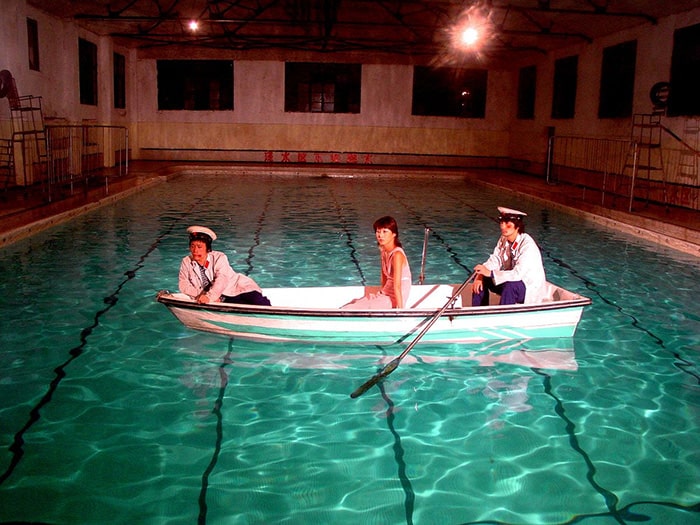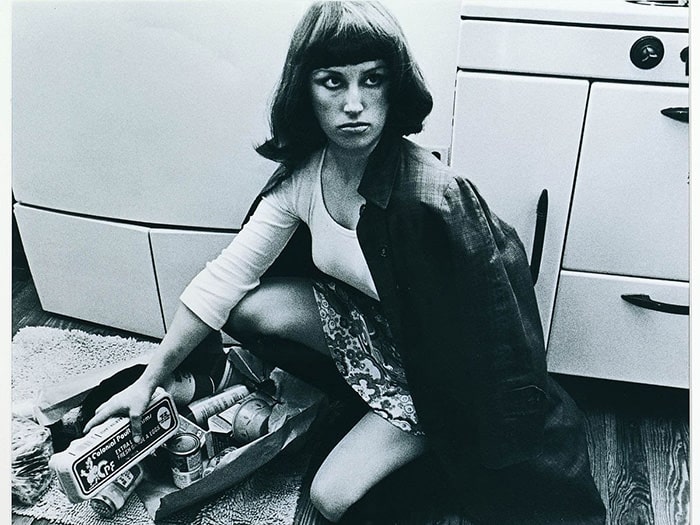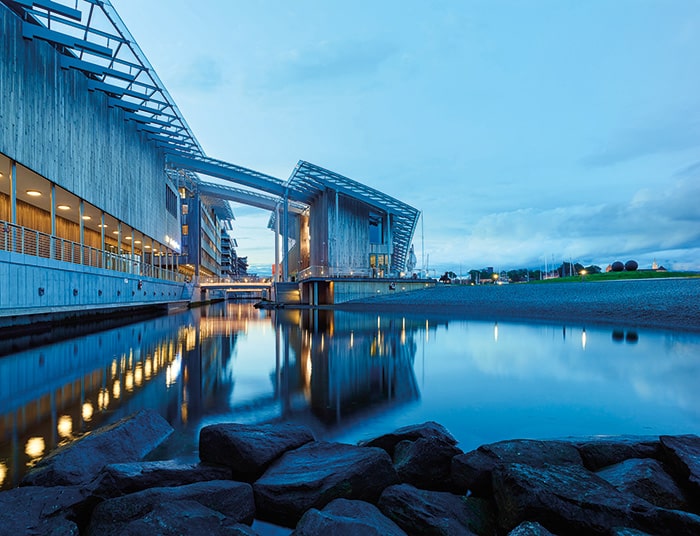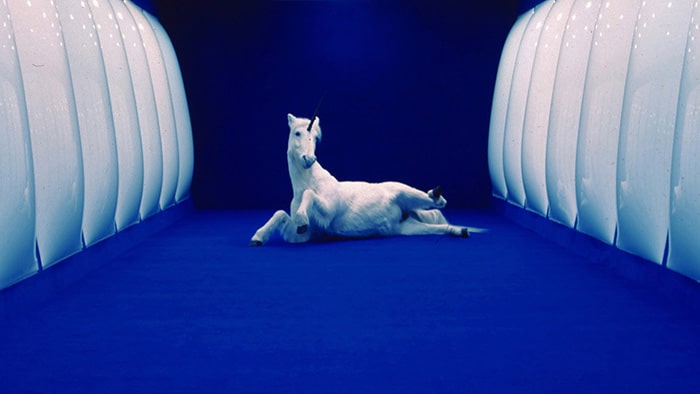Oslo’s Astrup Fearnley Museet will celebrate its thirtieth anniversary in 2023. To mark this milestone, the museum is organising a comprehensive exhibition entitled Before Tomorrow, which will feature works from the Astrup Fearnley Collection and span the museum’s two buildings designed by Renzo Piano.
Image above: Fig. 3.1. Børre Sæthre My Private Sky, 2001 Installation view Astrup Fearnley Museet, © Børre Sæthre Photo: Tore H. Røyneland
With over 1500 works, the Astrup Fearnley Collection is one of the most extensive collections of international contemporary art in Europe. In the 1960s, Hans Rasmus Astrup began building his collection with a focus on women artists rather than historical periods or styles, becoming one of the most active and influential collectors in the world. The collection includes significant works of both Norwegian and international origin. The focus of the collection is on female artists of the 1990s and their artistic legacy. Some of them became leading representatives of the art scene, such as Matthew Barney, Paul Chan, Trisha Donnelly, Nicole Eisenman, Ida Ekblad, Félix González-Torres, Rachel Harrison, Damien Hirst, Anselm Kiefer, Jeff Koons, Glenn Ligon, Julie Mehretu, Cindy Sherman and Kara Walker.

Hans Rasmus Astrup died in 2021 and left the extensive Astrup Fearnley Collection in its entirety to the Hans Rasmus Astrup Foundation. This change of ownership means that no part of the collection has been owned by a private individual or company since then and thus marks a new institutional chapter for the Astrup Fearnley Museet. The celebration of the museum’s anniversary is also a tribute to the museum’s founder Hans Rasmus Astrup, who made his collection accessible to all with this generous donation.
“In addition to a new institutional structure, the museum also strengthens its professional position as the only collector’s museum in Norway dedicated exclusively to contemporary art and open to the public. While other fine art museums focus on their historical collections and programmes and realise contemporary projects in parallel, Astrup Fearnley Museet is dedicated to art that is being produced today. This is a unique and important profile in the cultural field, where contemporary art is attracting an increasingly large and diverse audience. The museum aims to be a relevant platform for contemporary art, focusing on artistic quality, rigour and professionalism.”
The Before Tomorrow exhibition showcases the character of the collection with more than 150 works. In addition to new acquisitions from the past three years, the exhibition includes both iconic and lesser-known works, reflecting the breadth and scope of the collection and its identity.

The past and future of the Astrup Fearnley Museet are reflected in the collection’s diverse thematic focus, its surprising and often innovative new acquisitions, and the sense of curiosity that permeates it. While some works have dominated the public perception of the collection, Before Tomorrow will encourage new readings of these works by presenting them in dialogue with recent acquisitions, lesser-known objects and large-scale installations restaged from the museum’s previous programme.
The identity of the collection and the way it has been built since its inception in the late 1960s were a catalyst for identifying two lines of interpretation used to shape this exhibition: The first line is the notion of temporality. The fact that several works created and acquired earlier in the museum’s history resonate so clearly with the aesthetic, social and political concerns of today demonstrates that there is an inherent timeless nerve in many contemporary artworks. This is true, for example, of Shirin Neshat’s Fervor from 2001, which was the artist’s response to the changing Iranian identity after the 1979 Islamic Revolution. When this groundbreaking work is exhibited today, its content challenges perceptions of progress and also addresses existing conflicts of our time. Building an art collection requires moving through different geographical, intellectual and psychological realms, often collecting objects from different contexts and presenting them in close proximity to each other. Bringing these objects together conceptually and materially is thus a journey of the collector or institution and forms a second line of interpretation. Thomas Struth’s The Art Institute of Chicago II and Nanjing Xi Lu, Shanghai, on view in the exhibition, address both aspects by referring to different geographical, cultural and temporal contexts while highlighting the institution itself in which they are embedded.
Several large installations and video works from the Astrup Fearnley Collection are presented as part of Before Tomorrow. Børre Sæthre’s My Private Sky, first shown at the museum in 2001 and recently acquired for the collection, is reconstructed. This large-scale installation creates a seductive yet unsettling environment inspired by the history of cinema and the genre of science fiction. Kara Walker’s huge 2013 mural THE SOVEREIGN CITIZENS SESQUICENTENNIAL CIVIL WAR CELEBRATION, which recently became part of the collection, will be on view in the museum’s main exhibition space. After Wolfgang Tillman’s Concorde Project, begun in 1997, was shown in 2022 as part of his retrospective at the Museum of Modern Art in New York, visitors to the Astrup Fearnley Museum will now have the opportunity to see a selection of works from this series. In addition, Allora & Calzadilla’s large installation Clamor (2006), which includes a series of live sound activations, will be exhibited for the first time since 2009. Among the younger generation of artists, Helen Marten’s Orchids, or a hemispherical bottom (2013), first presented at the 55th Venice Biennale, will be in the exhibition, as will several Norwegian-based artists. Among them are Kim Hankyul, Frida Orupabo, Michael Lo Presti and Walter Price.

WHERE?
Astrup Fearnley Museet
Strandpromenaden 2
0252 Oslo, Norwegen
WHEN?
Exhibition days:
Thursday, 22. June – Sunday, 08. October 2023
Opening hours:
Tuesday, Wednesday, Friday – 12 pm – 5 pm
Thursday – 12 pm – 7 pm
Saturday and Sunday – 11 am – 5 pm
Monday closed






